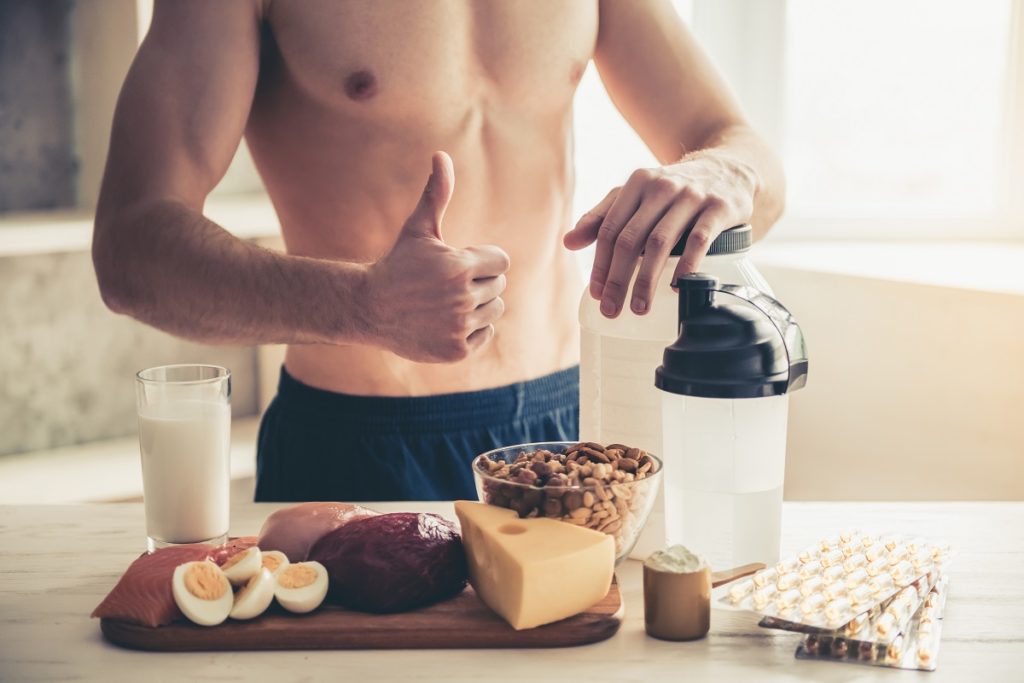Disclaimer: Mladysrecords. This site provides fashion and lifestyle content for informational purposes only.
Our daily macronutrients consist of carbs, fat, and protein. Carbs and fat have somewhat controversial properties that could negatively affect our health. Protein, however, has been widely regarded as an essential part of our diet because it boasts numerous health benefits.
Several studies have shown that high-protein diets result in metabolic health and weight loss. It’s because protein possesses hormones that reduce your hunger and make you feel full longer. It also contributes to muscle development by increasing both muscle growth and muscle mass. It makes protein a perfect part of your diet if you have an active lifestyle or are into weight-lifting and bodybuilding.
These are just some of the few benefits of protein, and they’re not the end of it. While a high-protein diet’s benefits are massive, don’t go running to the next supermarket on a quest to buy a tub of whey protein supplement just yet. There are many better natural sources of protein that could satisfy your daily protein intake without spending on protein supplements. Here are types of food with considerable amounts of protein that you should include in your high-protein diet.
Dairy
Many dairy products have high amounts of protein like milk, cheese, and yogurt. Per 100g serving, milk has about 3.4g of protein, yogurt has around 10g of protein, and cheese has a staggering 25g of protein. Additionally, dairy products are also rich in calcium and vitamin D, both of which help keep your teeth and bones strong and healthy. It’s only natural that you consider dairy protein in your daily diet.
Soy
If you’re lactose intolerant or vegan, soy milk is a great plant-based alternative for dairy with 3.3g protein every 100g. Did you know? Just fifty grams of soy protein intake daily lowers cholesterol levels by 3%, which helps reduce the risk of heart diseases. Additionally, soy-based food assists post-workout recovery. What? It gives you protein and helps with recovery? No wonder it’s a superfood.
Eggs
Love having omelets for breakfast? Don’t stop! Eggs are the least expensive source of protein. It packs 6g of protein in a single medium-sized egg. Eggs have always been a staple breakfast food, and having that much protein in a single egg explains why. Since protein gives you more energy, eggs in your breakfast are perfect to start your day!
White Meat Poultry
Have you ever wondered why most high-protein diets always have at least one meal using chicken breast? It’s because white meat poultry is an excellent source of lean protein while being low in fat. Chicken breast particularly only has 14g of fat and 27g of protein, making it a great addition to a high-protein diet.

Lean Beef and Lean Pork
If you’re a meat-lover, then you’re in luck. Lean beef and pork tenderloin both have 26g of protein every 100g. In addition to that, lean meats also supply the body with branched-chain amino acids (BCAAs). They are amino acids that help you recover faster and gives you more energy, making lean meats a no-brainer addition to your diet.
Fish and Seafood
Another popular choice for a high-protein diet is seafood. It’s because it’s low in fat and high in protein. Prawns, for example, only have a minuscule 0.3g of fat in contrast to 24g of protein per 100g serving. Fish, like Salmon, while having more fat at 13g per 100g serving, isn’t as bad as the fat in pork or beef. It’s because oily fish like Salmon is full of omega-3 fatty acids that are good for the heart and could reduce the risk of cardiovascular diseases.
How Much Protein Do You Need?
There are many different answers on the internet about how much protein you need every day. Some would say more, and others would say less, depending on their point of view. Not having enough protein could lead to several health issues that could lead to tissue breakdown and muscle loss, while consuming too much of it could make your body store the excess in the form of fat.
There are, however, guidelines set by the U.S. Department of Agriculture and the U.S. Department of Health and Human Services that outline their recommendations for protein intake in specific age groups. Their recommendations are as follows:
- Children under four years of age must consume at least 13 g of protein a day.
- Children between the ages of four and eight must have 19 g of protein daily.
- Children aged nine to 13 must take in 34 g of protein each day.
- Women and girls aged 14 or older must at least have 46 g of protein daily.
- Boys between the ages of 14 to 18 need about 52 g of protein every day.
- Men aged 19 and over must consume at least 56 g of protein per day.
If you want to run a business, you must take note of these statistics. Fortunately, your dairy protein suppliers and other partners are experts in the food and beverage industry, which means your venture will be in good hands.
Of course, these recommendations are just general guidelines, and if you want to know the best amount of daily protein intake for your body and age, consider consulting a nutritionist. Reap all the benefits of protein and give a high-protein diet a try and see the results for yourself.

